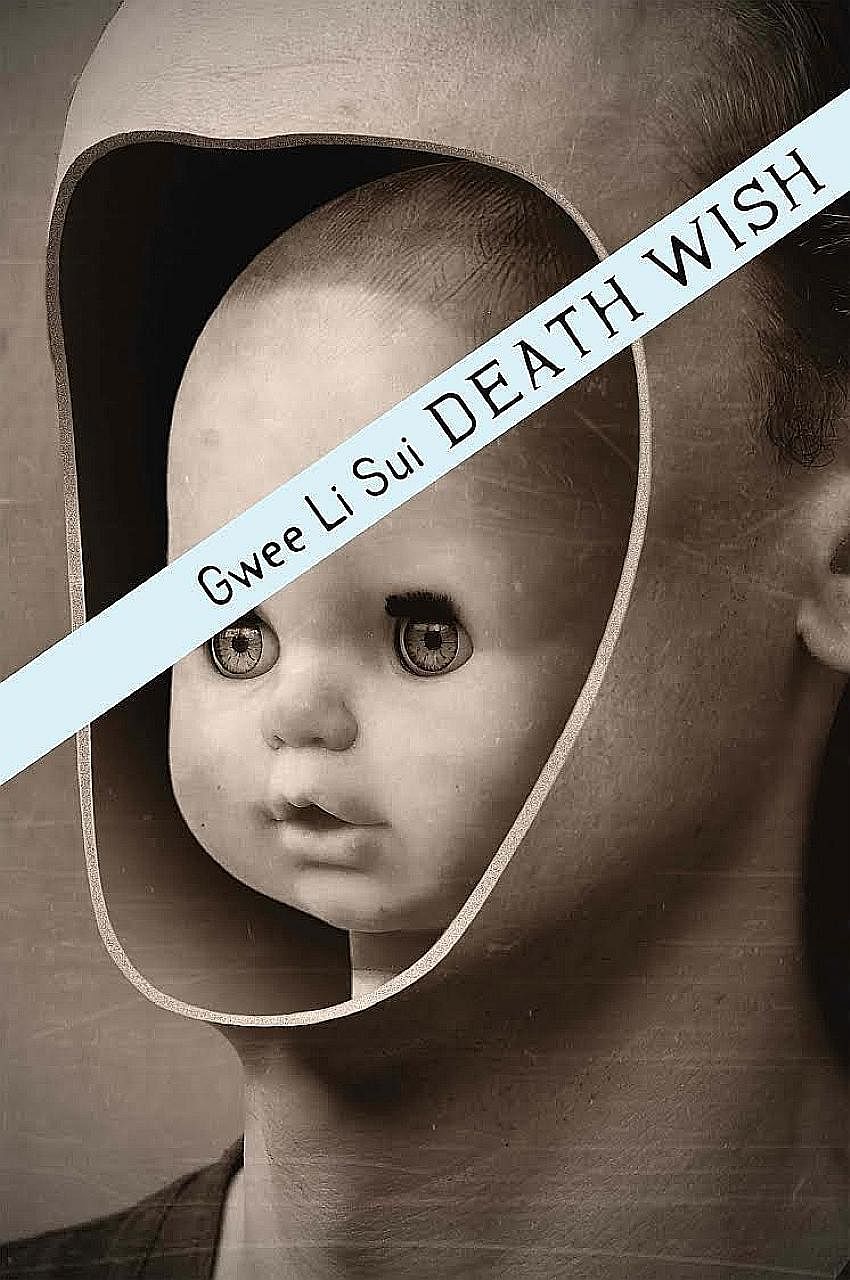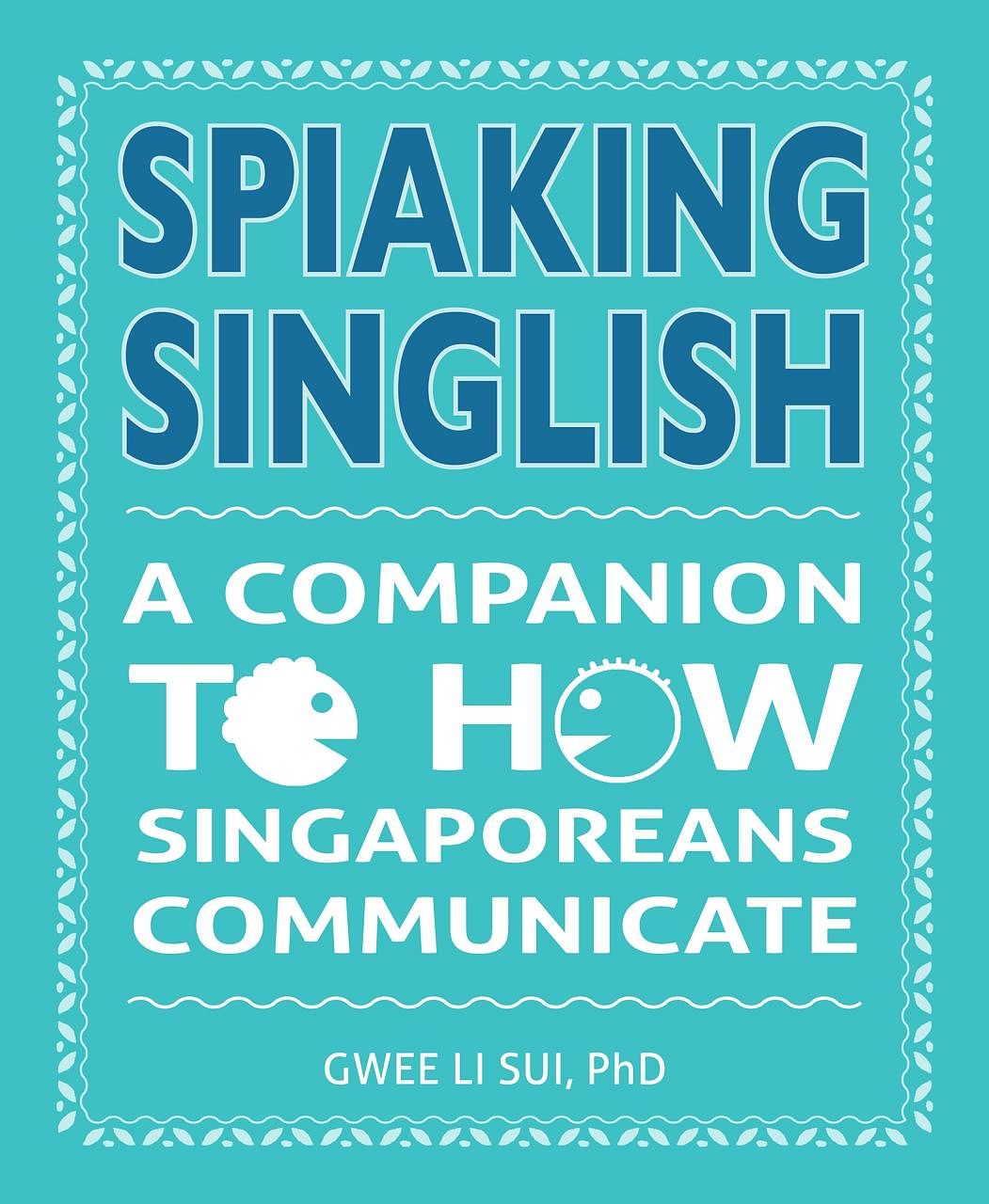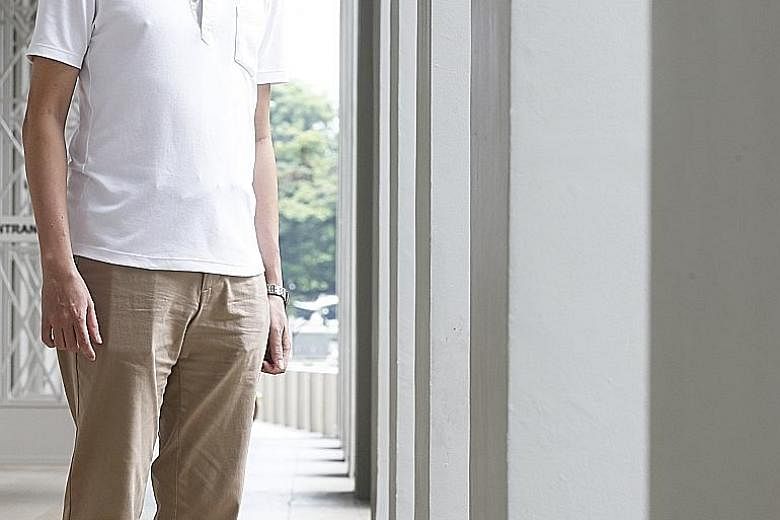In late October, poet Gwee Li Sui revealed two very different faces to the world. One was that of the irreverent former academic behind Spiaking Singlish, a tongue-in-cheek glossary of Singlish terms.
The other was much darker. Death Wish collects poems that the 47-year-old has written over the past 20 years, many of which he did not understand at the time and has only now begun to comprehend.
"My voice was fracturing," he says. "It took time for poetry to crystallise around these various voices."
Gwee, who is also a graphic novelist, editor and literary critic, published his debut poetry collection, the cheeky Who Wants To Write A Book Of Poems?, in 1998.
The humour he is known for in his poetry is also rampant in Spiaking Singlish - written entirely in Singlish and featuring his own hand-drawn comic strips - which has spent six weeks on The Straits Times' bestseller list for non-fiction.
In stark contrast, the creepy cover of Death Wish features a baby doll's disembodied head inside a hollowed-out adult face.

Gwee, who is single, says he was drawing on the Freudian psychological concept of the death drive, the "inherent, illogical wish to be done with a part of us, to be someone else".
The book is divided into six sections named after different personae, such as The Professor, The Philosopher and The Lovers, each representing an aspect of the world he has watched fall apart in the past two decades.
The poems in The Professor, for example, allude to his seven years as an assistant professor at the National University of Singapore. He left in 2009 after becoming disillusioned about academic life, such as feeling pushed to publish research before really having something to say. "As a poet, the multiplication of words for words' sake is a sort of violence."
Poems in other sections touch on events such as the 2009 coup of the Association of Women for Action and Research (Aware) executive committee by a group of Christian newcomers, and the National Library Board's 2014 withdrawal of two children's books dealing with alternative families and homosexual themes. Gwee, a Christian, had protested against both events.

"(Y)ou assume poetry/ is lazy politics," he writes in the poem Conscience Of Art. To counter such presumptions, he says, one should "be able to stand up for the things you write about instead of just letting them exist on paper without any lived future. The word should be powerful enough to change your own life, to push you to break out."
Despite the melancholy thrust of the collection, he feels that it ultimately purges despair in order to look towards hope. In The Garden Of Paper, for instance, he envisages the growth of the literary scene here, the "books... growing a people/ within a people".
"To survive in life, we need to do away with certain preconceptions and experiences," he says. "Passing through those negative emotions gives clarity to who we want to be."
•Death Wish ($19.90) and Spiaking Singlish ($24.98) are available at major bookstores.


